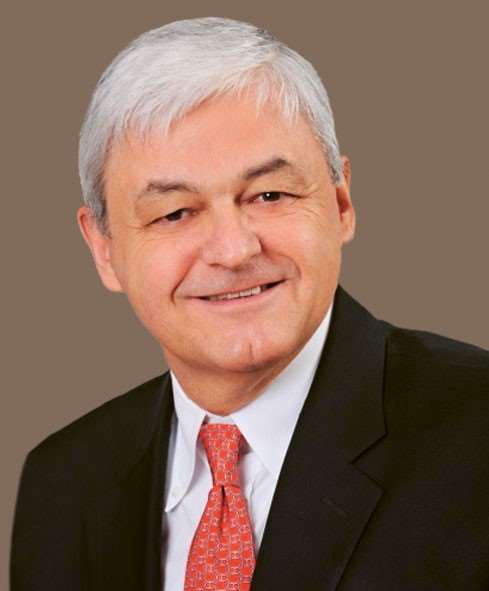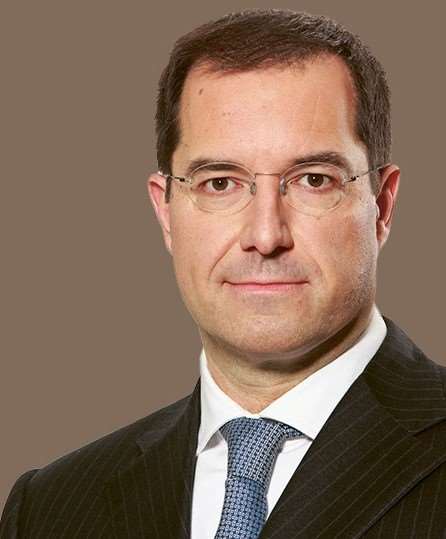Board of Directors
The Board of Directors has ultimate responsibility for supervising the Group’s top-level operational management personnel. The Board sets the Group’s strategic goals and the guidelines for organizational structure and financial planning.
As prescribed by the Articles of Association, the Board of Directors of Comet Holding AG consists of a minimum of five members. The composition of the Board of Directors is designed to ensure effectiveness. Key qualities sought in the recruitment of Board members are independent thinking and willingness to work in a team focusing exclusively on the interests of the Company and its principal stakeholders. The Board of Directors nominates non-executive and independent members within the meaning of the Swiss Code of Best Practice for Corporate Governance to be elected by the Annual Shareholder Meeting as members of the Nomination & Compensation Committee.
Composition of the Board of Directors of Comet Holding AG
On December 31, 2021, the Board of Directors of Comet Holding AG had the following five members:
|
|
|
|
|
|
|
|
Nationality |
Position on the Board |
Member since |
Elected until |
|
Heinz Kundert |
Swiss |
Chair and non-executive member |
2019 |
2022 |
|
Mariel Hoch |
Swiss and German |
Vice Chair and non-executive member |
2016 |
2022 |
|
Gian-Luca Bona |
Swiss |
Non-executive member |
2012 |
2022 |
|
Patrick Jany |
German |
Non-executive member |
2019 |
2022 |
|
Tosja Zywietz |
German |
Non-executive member |
2021 |
2022 |
Secretary of the Board (since 2010) and non-member of the Board: Ines Najorka, Vice President of Global Communications.
Additional information on the members of the Board of Directors
The information below outlines the education, significant professional experience and current position of each Board member. Where a place name is not followed by a country or state, the country is Switzerland.

Heinz Kundert
(b. 1952, Swiss citizen)
Education
Degree in industry management from Institute of Technology (ITA), Zurich; degree in business management from University of St. Gallen (HSG)
Professional experience
1981 to 1991: regional director Asia, Balzers AG; 1991 to 1999: division manager, Semiconductor and Data Storage, Balzers AG; 1999 to 2002: COO of Oerlikon-Bührle; 2002 to 2004: CEO of Unaxis AG; 2005 to 2015: VP of SEMI Intl. USA and president of SEMI Europe; 2015 to 2018: CEO of VAT Group

Gian-Luca Bona
(b. 1957, Swiss citizen)
Education
Dipl. Phys. master’s degree in physics from Swiss Federal Institute of Technology (ETH), Zurich and Dr. sc. nat. doctorate in physics from ETH, Zurich
Professional experience
1987 to 2002: IBM Research Laboratory, Rüschlikon; 2002: IBM Watson Research Center, Yorktown Heights, NY, USA; 2003 to 2004: research manager, Photonics Networks, IBM Research Laboratory, Rüschlikon; 2004 to 2008: research functional manager, Science and Technology, IBM Almaden Research Center, San José, CA, USA; 2008 to 2009: director of tape storage solutions, IBM, Tucson, AZ, USA; since September 2009: CEO of Empa (the Swiss Materials Science & Technology Laboratory) and professor of photonics at the Swiss Federal Institutes of Technology (ETH, Zurich and EPF, Lausanne)

Mariel Hoch
(b. 1973, Swiss and German citizen)
Education
Admitted to the Zurich bar in 2005; Dr. iur doctorate in law from University of Zurich and Lic. iur degree in law from University of Zurich
Professional experience
Partner at the law firm Bär & Karrer AG, Zurich

Patrick Jany
(b. 1968, German citizen)
Education
Degree in business administration from École Supérieure de Commerce de Paris (ESCP), France
Professional experience
1990 to 2006: Various positions at Sandoz, later Clariant, including CFO for ASEAN region, head of country organization of Clariant Mexico, and head of corporate development; 2006 to 2020: CFO and member of the Executive Committee of Clariant AG; since May 2020: EVP and CFO at A.P. Moller-Maersk A/S, Denmark

Tosja Zywietz
(b. 1971, German citizen)
Education
Dr. rer. nat. doctorate in physics from Fritz Haber Institute of the Max Planck Society, Berlin, Germany and Dipl. master’s degree in physics from University of Göttingen, Germany
Professional experience
Since 2020: executive committee member responsible for production, procurement and quality at Sick AG, Germany; 2009 to 2019: chief strategy officer and later CEO at Rosenberger Hochfrequenztechnik GmbH & Co. KG, Germany; 2002 to 2009: founder and owner of and director at Biosigna GmbH, Institut für Biosignalverarbeitung und Analyse, Germany; 2003 to 2004: project leader at Boston Consulting Group UK LLP; 2001 to 2003: consultant in health care, information technology and financial services practices at Boston Consulting Group GmbH
Operational management functions
With the exception of Heinz Kundert (who was interim CEO from June 21, 2019 to August 31, 2020), no Board member is or was a member of the operational management of Comet Holding AG or any of its subsidiaries over the last three fiscal years ending December 31, 2021.
Disclosure of potential conflicts of interest
No member of the Board of Directors has any material business relationship with Comet Holding AG or any of its subsidiaries. In the event of a potential or impending conflict of interest, the Board member concerned is required to inform the Chair of the Board of Directors immediately.
Activities and interests outside the Group
Article 27 of the Articles of Association, which are compliant with the OAEC, specifies the allowable number of other, external positions that members of the Board of Directors may hold on top management or supervisory bodies , as follows:
- Members of the Board of Directors may each not hold more than five external positions on top management or supervisory bodies of listed (i.e., exchange-traded) companies and not more than seven such external positions in non-listed companies.
- Members of the Board of Directors may each not hold more than ten such positions in associations, non-profit foundations, family foundations and employee pension funds.
- Positions in companies controlled by Comet Holding AG, or positions controlled by it, are not subject to restriction.
In fiscal year 2020 and 2021, no member of the Board of Directors exceeded any limits for additional positions held. At December 31, 2021 the members of the Board of Directors had the following additional positions on top management or supervisory bodies of significant Swiss and foreign private sector and public sector companies, institutions and foundations:
Heinz Kundert
Board vice chairman, VAT Group, Haag; board member, Variosystems AG, Steinach; board chairman, VT5 Acquisition Company AG, Pfäffikon
Gian-Luca Bona
Board member, Bobst Group SA, Mex, Switzerland; board member Switzerland Innovation Park Ost AG, St. Gallen; board member, Technopark Zürich Foundation; member, ETH Board (the board of the Swiss Federal Institutes of Technology); chairman, glaTec technology center, Dübendorf; board member, Innovation Park Zurich foundation; advisory council member, German Federal Institute for Materials Research and Testing (BAM), Berlin, Germany
Mariel Hoch
Board member and member of the audit and risk committee and compensation committee, SIG Combibloc Group AG, Neuhausen am Rheinfall; board member and member of the audit committee, Komax Holding AG; board member, MEXAB AG; board member, The Schörling Foundation, Lucerne; board member Law & Economics Foundation, St. Gallen; board member Irene M. Staehelin Stiftung (a foundation), Zurich
Tosja Zywietz
Non-executive member of the board, Alupak AG, Belp; non-executive chairman, Wiferion GmbH, Freiburg, Germany
Board elections and terms
The Board members are elected by the Annual Shareholder Meeting for a term of one year. They are individually elected when standing for election or re-election. The Annual Shareholder Meeting also elects one member of the Board of Directors as the Board Chair and elects the members of the Nomination & Compensation Committee.
The term of office ends at the conclusion of the next Annual Shareholder Meeting. Re-election for consecutive terms is permitted. If elections are held during a term to replace or add Board members, the newly elected members serve for the remainder of the current term.
The Articles of Association are in accordance with the legal requirements of the OAEC.
Internal organization
Except for the election of the Board Chair and the members of the Nomination & Compensation Committee by the Annual Shareholder Meeting, the Board of Directors constitutes itself at its first meeting after its election or re-election by the Annual Shareholder Meeting. The Board appoints its Vice Chair, the members of the other Board committees and the Board Secretary. The Secretary need not be a member of the Board.
The Chair of the Board of Directors has the following duties and powers:
- Act as Chair of the Shareholder Meetings
- Call meetings of the Board of Directors and set the agenda
- Supervise, comply with and implement the resolutions of the Board of Directors
- Immediately inform all members of the Board of Directors of extraordinary events
- Ensure that urgent business matters are transacted within the required timeframe
- Interact with the senior management of the Comet Group
- Monitor the implementation of measures decided by the Board of Directors
- Take all measures required to safeguard the interests of the Comet Group
- Represent the Board of Directors internally and externally
The Vice Chair of the Board assumes the powers and duties of the Chair in his or her absence. The chairs of the Board committees lead their respective committees and report to the Board of Directors.
The Board meets at the invitation of the meeting’s chair as often as business requires, or when requested by a Board member in writing for a stated purpose. The Board has a quorum when the majority of members are present. The Board passes its resolutions and performs its elections by an absolute majority of votes cast. In the event of an equality of votes, the chair of the meeting has the casting vote.
Resolutions on a motion may alternatively be reached in writing if no Board member objects to this method. Minutes must be kept of the deliberations and resolutions and be signed by the meeting’s chair and the Board Secretary. The minutes are submitted to the Board for approval at its next meeting.
Functioning of the full Board of Directors
A total of eight regular meetings of the full Board were held in the year, as well as several teleconferences. In addition, several meetings of the Board committees were held. An overview of the meetings of the Board of Directors and the members in attendance is shown below.
|
Name |
February |
March |
April |
June |
August |
November |
December |
||||
|
|
BoD |
AC |
BoD |
BoD |
BoD |
BoD |
AC |
BoD |
BoD |
AC |
BoD |
|
Heinz Kundert |
x |
x |
x |
x |
x |
x |
x |
x |
x |
x |
x |
|
Mariel Hoch |
x |
-- |
x |
x |
x |
x |
-- |
x |
x |
-- |
x |
|
Patrick Jany |
x |
x |
x |
x |
x |
x |
x |
x |
x |
x |
x |
|
Gian-Luca Bona |
x |
-- |
x |
x |
x |
x |
-- |
x |
x |
-- |
x |
|
Rolf Huber |
x |
x |
x |
x |
-- |
-- |
-- |
-- |
-- |
-- |
-- |
|
Tosja Zywietz |
-- |
-- |
-- |
-- |
x |
x |
x |
x |
x |
x |
x |
BoD: Regular meeting of the Board
AC: Audit Committee
x: attended
– -: not attended or not a member of the Board or Committee at that time
All meetings held up to and including April 2021 were virtual meetings. After April 2021 up to and including November 2021 all meetings were attended by Board members physically. In December 2021 all meetings were again virtual meetings.
The Board of Directors is regularly kept informed of the course of business by the CEO and CFO at its meetings, and also on an ad hoc basis as needed. Other members of the Executive Committee, other management staff and specialists of the Group regularly attend Board meetings to report on particular projects in their area of responsibility. In addition, external advisors are consulted as required to deal with specific matters. The Board receives monthly written financial reports on the current business performance.
Board committees
In fiscal year 2021 the Board committees had the following members:
|
|
|
|
Committee |
Members |
|
|
|
|
Nomination & Compensation Committee (NCC) |
Mariel Hoch (Committee chair) |
|
|
Rolf Huber (until April 2021) |
|
|
Gian-Luca Bona (from April 2021) |
|
|
|
|
Audit Committee (AC) |
Patrick Jany (Committee chair) |
|
|
Rolf Huber (until April 2021) |
|
|
Tosja Zywietz (from April 2021) |
|
|
|
|
Technology Committee (TC) |
Gian-Luca Bona (Committee chair) |
|
|
Tosja Zywietz (from April 2021) |
The Annual Shareholder Meeting elects the members of the Nomination & Compensation Committee. The members of the other committees are elected by the Board from among the Board members for a term of one year. Every committee normally consists of at least two members of the Board and meets at least twice per year, or as often as business requires.
The committees’ principal function is to prepare decision support for the full Board in special subject areas. At the regular meetings or as required, the full Board is kept informed of the activities of the individual committees. Reports to the full Board are made orally or in writing as required. The overall responsibility for the tasks assigned to the committees remains with the full Board, which decides as a body on all proposals.
Nomination & Compensation Committee
The Nomination & Compensation Committee (NCC) is made up of two members of the Board, who are elected to the Committee yearly by the Annual Shareholder Meeting. The term of office is one year. Re-election for consecutive terms is permitted. The NCC prepares all agenda items related to the nomination and compensation of Board members and Executive Committee members. The NCC itself does not make decisions, but prepares proposals for the approval of the full Board of Directors. The Committee has the following responsibilities in particular (additional responsibilities may be assigned to it as required):
- Address both the compensation policy for the remuneration of the Board of Directors and Executive Committee, and the Comet Group’s compensation structure
- Prepare the compensation report and support the Board of Directors in preparing resolutions for the Annual Shareholder Meeting for the approval of compensation
- Develop proposals for guidelines for the compensation of the Board of Directors and Executive Committee
- Review stock ownership plans and recommend adjustments as appropriate
- Propose new Board members and Executive Committee members for appointment
- Provide support to the CEO in evaluating candidates for the Executive Committee
In fiscal year 2021, the NCC handled the following compensation- and nomination-related tasks on behalf of the Board of Directors:
- Identification and assessment of potential candidates for positions on the Board based on predefined criteria, and recommendation to the full Board regarding their nomination for election or re-election at the Shareholder Meeting.
- Identification and assessment of potential candidates for positions on the Executive Committee based on predefined criteria, and recommendations to the full Board.
- Review of the succession planning and of the list of possible substitutes in case of absences on the Executive Committee, and preparation of corresponding proposals to the full Board.
- Recommendation to the full Board for approval of the annual compensation report.
In the year under review, the Committee held seven meetings, all of which were attended by both of its members and Luigi Cornacchia, Global Head of HR as secretary. In an advisory role, the Chairman of the Board and the CEO also attended. The Committee may invite other Board members, Executive Committee members and specialists to its meetings as required. However, the members of the Executive Committee do not attend the compensation-related Board meetings and do not have a say in their compensation. The NCC chair briefs the Board of Directors on the activities at the next Board meeting and submits the necessary proposals and recommendations. Minutes of the NCC meetings are taken and signed by the chair of the NCC and its secretary. Once the minutes are approved, they are circulated to all members of the Board.
Audit Committee
The Audit Committee supports the full Board in exercising oversight of accounting and financial reporting and in monitoring compliance with legal requirements. The Committee has the following responsibilities in particular:
- Evaluate the structure and form of the Group’s accounting system
- Gauge the effectiveness of the independent auditors and the internal controls; evaluate the coordination of external and internal auditing, and review the performance and compensation of the external independent auditors
- Evaluate the effectiveness of risk management
- Review the financial reporting to shareholders and the public
- Issue directions to the internal audit function and, as may be required on a case-by-case basis by the resulting findings, issue directions to the Executive Committee
During the fiscal year, three meetings were held by the Audit Committee. They were attended by the external auditors, internal audit, the CEO and the CFO. The Committee may invite other Board members, Executive Committee members and specialists to its meetings as required. At each Board meeting, the Audit Committee reports on its activities to the Board of Directors and submits the necessary proposals and recommendations to the Board.
Technology Committee
The Technology Committee provides support to the full Board in matters of technology. The Committee has the following responsibilities in particular:
- Monitor international developments in technology and evaluate the emerging trends for their relevance to the Comet Group
- Assess the Group’s internal research and development activities
- Ensure the Group holds at least one technology day or equivalent event per year
The Committee meets as often as business requires. In fiscal year 2021, it held two meetings. During the year the appraisal of technology sector developments, as well as the development measures taken by the Group, were regularly discussed with the division presidents in the course of the Committee meetings and the Board’s scheduled meetings.
Division of authority
The Board of Directors is responsible for the overall direction and management of the Group and for the supervision of its most senior operational management. The non-delegable and inalienable duties of the Board of Directors are established by article 716a of the Swiss Code of Obligations. The Board’s specific responsibilities and scope of authority are set out in the Company’s Organizational Regulations and include the following areas among others:
- Determine the Group’s strategic direction and financial targets and allocate the resources required to achieve them
- Establish the Group’s objectives, business policy and strategy, and organizational structure
- Approve the rolling short- and medium-term financial plans
- Approve the acquisition and disposal of subsidiaries and of equity interests in other companies, and approve collaborations with other firms
- Approve the purchase and sale of real estate
- Appoint and withdraw members of the Group’s Executive Committee and the presidents of its subsidiaries and exercise oversight and control of their activities
The Board of Directors has delegated all operational management of the Group to the CEO and the Executive Committee, except as otherwise required by law, the Company’s Articles of Association and the Organizational Regulations. The CEO and Executive Committee have the necessary powers to execute the business strategy within the parameters set by the Board of Directors. In particular, the CEO has the authority to:
- Manage the Comet Group, implement the Board’s strategic directions and decisions, and ensure timely and appropriate reporting to the Board
- Develop business targets within the general objectives established by the Board and present proposals for the rolling forecasts and for the strategic multi-year planning
- Request items of business to be placed on the agenda of Board meetings, prepare such business for transaction by the Board, and ensure the implementation of the Board’s decisions
- Implement an internal control and management information system based on the specifications of the Board
- Regularly review the business risks, and establish a Board-approved risk management system for this purpose
- Regularly review the degree of achievement of the financial targets and strategic goals, as well as the Group’s liquidity
- The members of the Executive Committee report to the CEO
Monitoring and control with respect to the Executive Committee
The Chair of the Board may attend the meetings of the Executive Committee and receives the minutes of all its meetings. The Board of Directors also receives regular reports on the course of business from the Executive Committee at Board meetings. In the case of extraordinary events, the Executive Committee informs the Board immediately. The CEO and CFO attend all regular meetings of the Board. At least one to two times per year, in the context of Board meetings, the other members of the Executive Committee also report to the Board on their business area.
Management information system
The monthly financial reporting by the Executive Committee on the current course of business and important transactions gives the full Board of Directors the information needed to properly discharge its responsibilities. The standardized internal reporting of the Group consists of the IFRS-based consolidated balance sheet, statement of income and cash flow statement, as well as detailed management reporting. Complementing the monthly consolidated financial statements and a comprehensive range of financial ratios, the management reporting presents and comments upon additional information such as new orders and order backlog, staffing levels and accounts past due, provided in table and chart form. This data is presented both by division and on a consolidated basis for the Group and is compared to the prior year and the rolling forecast. The resulting insights and actions are discussed monthly by the Executive Committee. All monthly financial statements are submitted to the Board of Directors, which discusses them at its meetings. As a longer-term control tool, a rolling multi-year plan is prepared annually for the subsequent three years. In addition, every quarter, management generates a rolling forecast for the following five quarters. These forward-looking control tools, which are accompanied by detailed commentary and documented with charts, enable the Board to continually evaluate the financial effectiveness of the adopted business strategy and then to take action if and as required.
Internal audit
The internal audit function provides an objective and effective value-added internal audit service using a systematic and disciplined approach to assist management in monitoring compliance, controlling risks and improving the effectiveness and efficiency of internal control systems and governance processes.
The internal auditor reports directly to the Audit Committee of the Board of Directors, at least twice per year and more frequently as required. On completion of each audit, an audit report is prepared and is discussed in the Executive Committee and reviewed with the national lead personnel responsible (typically the local company presidents responsible for the relevant business) and/or the persons directly affected by the audit, in order to initiate the implementation of the planned measures. The internal auditor then prepares a final audit report for the Board of Directors, with a corresponding action plan. The reporting is based on the current audit priorities approved by the Board each year. The nature of the coordination and cooperation between the internal audit function and the external audit firm, complete with the identification of the respective responsibilities, has been specified in writing and approved by the Board.
From 2006 until end of 2021 the internal audit function was performed on a consulting basis by Robert Kruijswijk, Switzerland. His compensation was determined by the amount of work performed. In 2021, Robert Kruijswijk carried out various audits at a number of locations. The following audits were performed in the fiscal year:
- Production of IXM division, Flamatt, Switzerland
- Production of PCT division, Flamatt, Switzerland
- Contracts related to ebeam spin-off
- Research and Development and life cycle management in IXM division
- Research and Development and life cycle management in PCT division
- Central services at Yxlon, Hamburg, Germany
Comet entered into an internal audit outsourcing service agreement with KPMG AG Switzerland effective January 1, 2022. The internal audit function is functionally reporting to the Audit Committee and administratively to the Group CFO. The compensation is determined by the amount of work performed under the service agreement and approved by the Audit Committee.
Risk management system
Risk management includes the annual evaluation of strategy by the Board of Directors and the assessment by the Executive Committee of insurance cover, of the general business risks and of the major balance sheet items. The approach to risk management is described in a risk strategy approved by the Board and is specified in a written risk management procedure for implementation by the Executive Committee. The significant risks in the individual business areas and departments are identified in quarterly working group sessions and systematically described and categorized in a risk matrix. The risks are assessed using a risk rating based on the probability of occurrence and the potential severity of loss, as well as by calculating potential absolute financial risk. For the risks classified as important, action plans are formulated to minimize the probability and/or potential severity of loss. The Group’s Executive Committee regularly reviews the effectiveness of the actions taken and decides on a potential updating of the risk portfolio. Newly identified risks are added to the portfolio and action plans are formulated to manage them. Through separate reports, the Audit Committee at each of its meetings is kept advised of the current assessment of the Group’s risks.
Internal control system
Comet operates a system of internal control (the “internal control system”) to provide reliable internal and external financial reporting and to prevent false information and errors in business transactions. The internal control system provides the necessary processes and controls to ensure that risks relating to the quality of the company’s financial reporting can be detected and managed in a timely manner. A review of the existence of the processes and controls of the implemented internal control systems is carried out by the external auditors annually.
In the fiscal year, where required, Comet further expanded, trained or documented the existing internal control system. The internal control system is in use at all levels of the enterprise and in all significant locations. The significant risks and controls are in accordance with the objectives and quality requirements established by the Board of Directors. The staff members responsible for the internal control system have been designated Group-wide, the employees involved have been trained and the control functions clearly assigned. The controls are integrated in the respective processes and are periodically tested for effectiveness, logical sense and efficiency. The introduction of a uniform, systematic process for risk detection and assessment has enhanced the reliability and completeness of bookkeeping and the timeliness and dependability of financial reporting.

